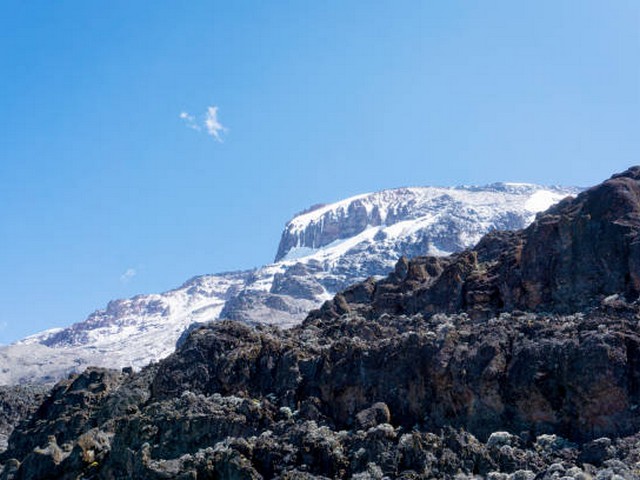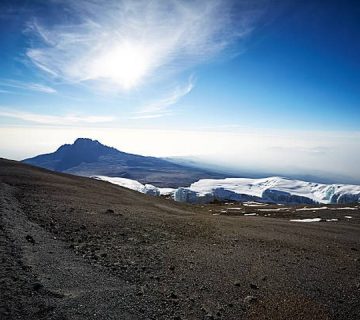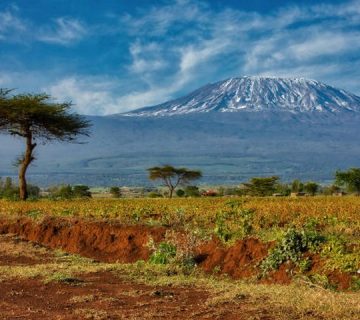Experience the Magic of Mount Kilimanjaro Trek With Local Cultural Encounters
Nestled in the heart of Tanzania, Mount Kilimanjaro isn’t just an icon of Africa’s vast wilderness but also a beacon of cultural diversity and warmth. At Kilimanjaro Centre for Trekking and Ecotourism (KCTE), we specialize in blending the awe-inspiring treks up this majestic mountain with enriching local cultural encounters. This unique combination offers adventurers like you a once-in-a-lifetime experience that goes beyond the usual trekking.
Why Choose a Kilimanjaro Trek with Local Cultural Encounters?
Embarking on a Kilimanjaro trek is a noteworthy achievement in itself. However, when you integrate local cultural experiences, the journey transcends physical achievement. It becomes a profound immersion into the heart and soul of Tanzania. Through our carefully curated treks at KCTE, you not only challenge your physical limits but also connect deeply with local communities, understanding their way of life, traditions, and stories.
The Kilimanjaro Adventure: More Than Just Climbing
Climbing Kilimanjaro is an exhilarating challenge that attracts thousands of trekkers each year. The routes are diverse, each offering unique vistas and experiences. At KCTE, we provide expert guidance on routes like Machame, Marangu, and Lemosho, ensuring you find a path that suits your adventure spirit and fitness level.
Integrating Local Culture in Your Trek
As part of our unique approach, KCTE ensures that your trekking experience is enriched with authentic cultural interactions. Imagine visiting a Chagga village, where you can participate in coffee making, or enjoying a traditional meal with a Maasai family. These interactions allow you to gain insights into the local customs and traditions, making your climb a more holistic and fulfilling adventure.
Benefits of Trekking with KCTE
-
Expert Local Guides: Our guides are not only skilled in navigating the challenging terrains of Kilimanjaro but are also deeply rooted in their local cultures. They are eager to share their knowledge and stories, making your trek educational and entertaining.
-
Safety and Comfort: Safety is paramount at KCTE. We ensure all our treks are equipped with the necessary safety gear and support, including first aid trained guides and porters who are integral to the local communities.
-
Sustainable Tourism: By choosing KCTE, you contribute to sustainable tourism practices that benefit the local communities economically and socially.
-
Tailored Experiences: Every trekker is unique, and so should be their experience. We offer customized treks that cater to your specific interests and fitness levels, including detailed cultural encounters.
Memorable Moments: Cultural Encounters on Kilimanjaro
Learning from the Chagga Tribe
The slopes of Kilimanjaro are home to the Chagga tribe, renowned for their agricultural skills, particularly in coffee cultivation. A visit to a Chagga village not only educates you on traditional farming methods but also offers hands-on experiences like preparing local dishes or brewing traditional banana beer.
Engaging with the Maasai People
The iconic Maasai tribe, known for their distinctive customs and attire, offers an extraordinary cultural exchange. Participate in Maasai dances, or listen to ancient stories under the starlit African sky. These moments of interaction are not just profoundly moving; they also foster a greater appreciation for the diversity of cultural practices and human resilience.
Visiting Local Markets and Crafts Centers
KCTE organizes trips to local markets and crafts centers where trekkers can observe and participate in the making of traditional crafts such as beadwork and pottery. These markets are also a fantastic place to purchase souvenirs that support the local economy.
Preparing for Your Trek: Tips and Insights
Physical Preparation
While the cultural encounters enrich your journey, the physical challenge of climbing Kilimanjaro is real. We recommend starting a fitness regimen at least six months before your trek. This includes cardiovascular exercises, strength training, and hiking practice.
Cultural Sensitivity
When engaging with local communities, it’s crucial to approach with respect and openness. Learning a few basic phrases in Swahili or the local tribal languages can go a long way in building rapport and enriching your interactive experience.
Frequently Asked Questions (FAQs)
Q1: What is the best time to plan a Kilimanjaro trek with cultural encounters?
The best time to trek Kilimanjaro is during the dry months of January to March and June to October. These periods also offer vibrant cultural activities in the local communities.
Q2: How do I handle altitude sickness during the trek?
KCTE’s guides are trained to assist in managing altitude sickness, including preventive measures and immediate response strategies. Ensuring proper acclimatization days are included in your itinerary is key.
Q3: Can I customize my itinerary to include more cultural activities?
Absolutely! KCTE specializes in creating customized itineraries that can include additional cultural activities based on your interests.
Q4: Are there any age restrictions for the trek?
While there is no official age limit, the trek can be physically demanding. We recommend that children be at least 10 years old and in good health. Likewise, older adults should consult with a doctor before booking.
Ready to Embark on Your Journey?
Climbing Kilimanjaro with KCTE is not just about witnessing the breathtaking landscapes but also about embracing the rich cultural tapestry of Tanzania. Our tours are designed to ensure you leave with not just photos, but with stories and friendships.
Book your Kilimanjaro climbing adventure with Kilimanjaro Centre for Trekking and Ecotourism today, and prepare for an enriching journey that transcends the ordinary. Explore the roof of Africa, and immerse yourself in the vibrant cultures that make Tanzania a truly unique destination. Let’s make your dream climb a reality filled with adventure, and cultural enlightenment. Contact us to start planning your journey!




